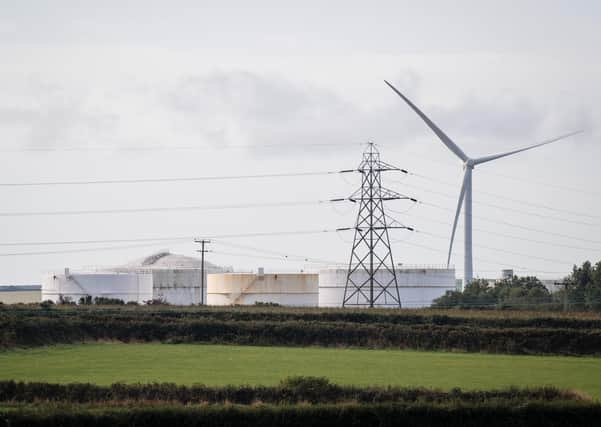A green energy revolution to power Britain’s net zero ambitions – Ted Christie-Miller


We have committed to eliminating carbon emissions in the UK by 2050, but currently the technologies to get us there are too expensive and too inefficient to succeed without lower growth, higher borrowing or worse living standards. We need to innovate our way to net zero.
The UK is without doubt a world leader in decarbonisation. We were the first major economy to declare and enshrine in law a net zero target, lead the G20 in emissions reductions – having decarbonised by more than 44 per cent since 1990 – and have already used November’s upcoming COP26 presidency to push China and others to end their support for new coal power projects abroad.
Advertisement
Hide AdAdvertisement
Hide AdBut we need more money to be ploughed into decarbonisation if we are to stay on track with our net zero pathway. The Climate Change Committee (CCC), which advises Parliament on all things green, estimates that around £50bn of additional investment into low-carbon technology and infrastructure is required each year to make the transition.


As a new Onward research report revealed this week, hitting this figure will require a near seven-fold increase in spending over the remainder of this decade to get the UK on track for net zero. Total capital investment in low carbon sectors of the economy was just £44bn in the period from 2014 to 2019. That’s just £7.3bn per year, equivalent to 14 per cent of the level required by the CCC’s estimates
These poor levels of investment have been twinned with sluggish green innovation in the UK in recent years. Between 2012 and 2016, for example, Germany filed 3.5 times as many patents in environmentally-related technologies than the UK, while China – historically lax on intellectual property – filed more than twice as many. Unless the UK significantly ramps up innovation there is a serious risk that new net zero technologies will be dominated by our competitors.
We are at a critical chapter in the decarbonisation story. The net zero transition will rely on a wide array of new technologies, many of which – such as carbon removal technologies and hydrogen – are still in their nascent form and are not yet ready for full-scale commercialisation.
Advertisement
Hide AdAdvertisement
Hide AdThis presents an enormous opportunity to the UK. These young industries will not only be important to domestic decarbonisation – they will likely be worth hundreds of billions to the future global economy. Acting first and acting fast to drive innovation in these sectors and bring new products to market could enable the UK to take home a sizable piece of this pie.


To make up for lost ground in existing industries, and steal a march on our competitors in the technologies of the future, there are a number of practical steps that ministers can take to boost innovation in new net zero technologies and ensure the UK can capitalise on the opportunities to attract new jobs and investment across the breadth of the country.
In the first instance, the Government should establish a National Energy Laboratory with a licence, and the funding, to conduct high-risk research into overcoming the challenges facing the UK’s energy sector. This would mirror similar systems of laboratories in the US and Germany, which have proven to be innovation powerhouses and have attracted some of the best scientific talent globally. This laboratory could work closely with industry in order to test new innovations and help to commercialise them for use elsewhere.
To support this, ministers should launch new subsidies for Carbon Removal technologies such as Direct Air Capture. According to the Climate Change Committee as much as one sixth of emissions abatement by 2050 is due to come from carbon removals. At present this industry is in its infancy and needs urgent support to get it firing on all cylinders.
Advertisement
Hide AdAdvertisement
Hide AdIf we act now, the UK can be the beating heart of the green industrial revolution, leading the world in decarbonisation while reaping the benefits of further economic growth and new jobs. Our international competitors are yapping at our heels so we must move quickly and decisively to grasp the prize that this transition represents.
And with COP26 being held in Glasgow next month, the world is watching.
Ted Christie-Miller is co-author of a report, Getting to Zero Programme, published by the Onward think-tank.
Support The Yorkshire Post and become a subscriber today. Your subscription will help us to continue to bring quality news to the people of Yorkshire. In return, you’ll see fewer ads on site, get free access to our app, receive exclusive members-only offers and access to all premium content and columns. Click here to subscribe.
Comment Guidelines
National World encourages reader discussion on our stories. User feedback, insights and back-and-forth exchanges add a rich layer of context to reporting. Please review our Community Guidelines before commenting.